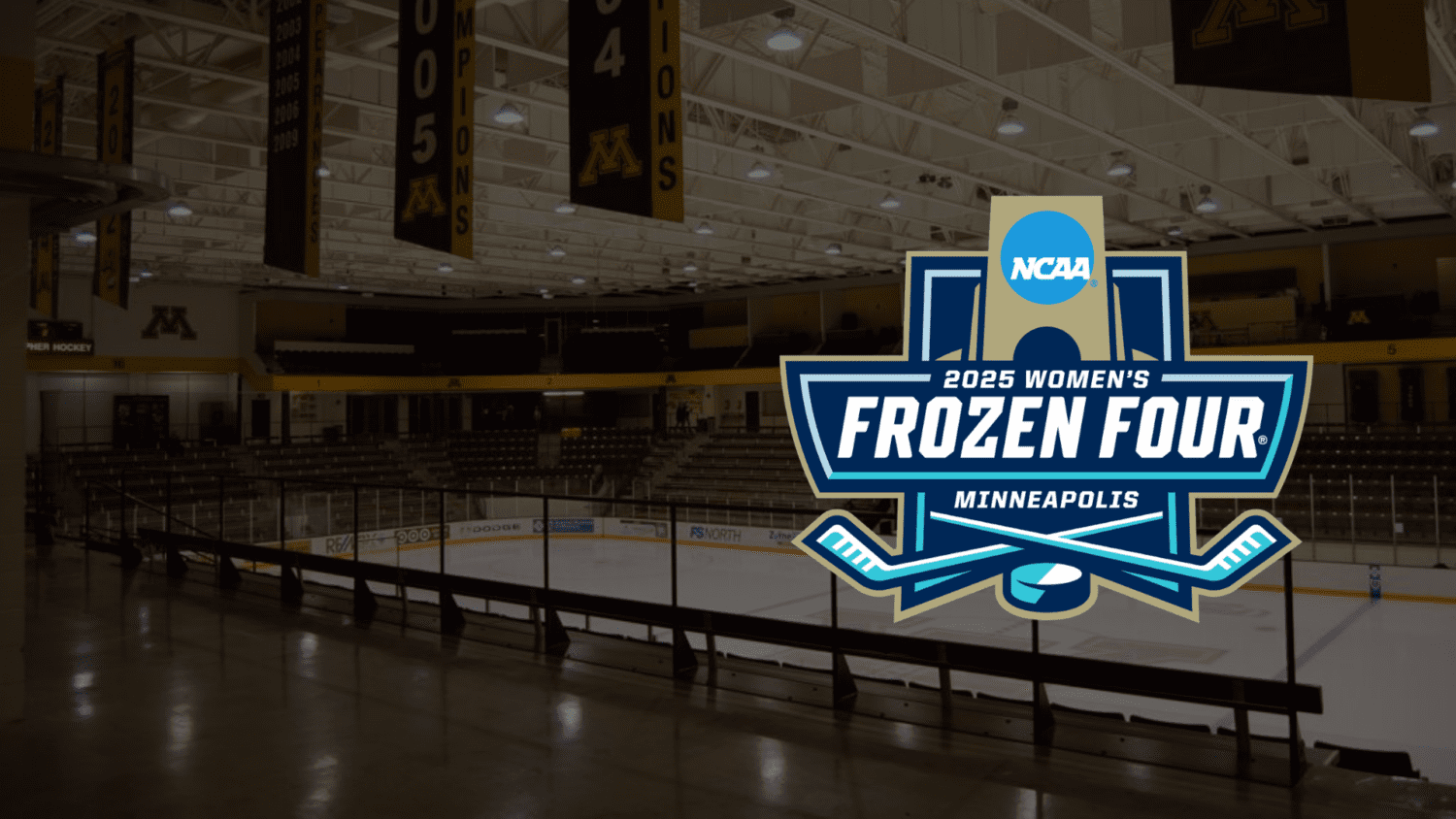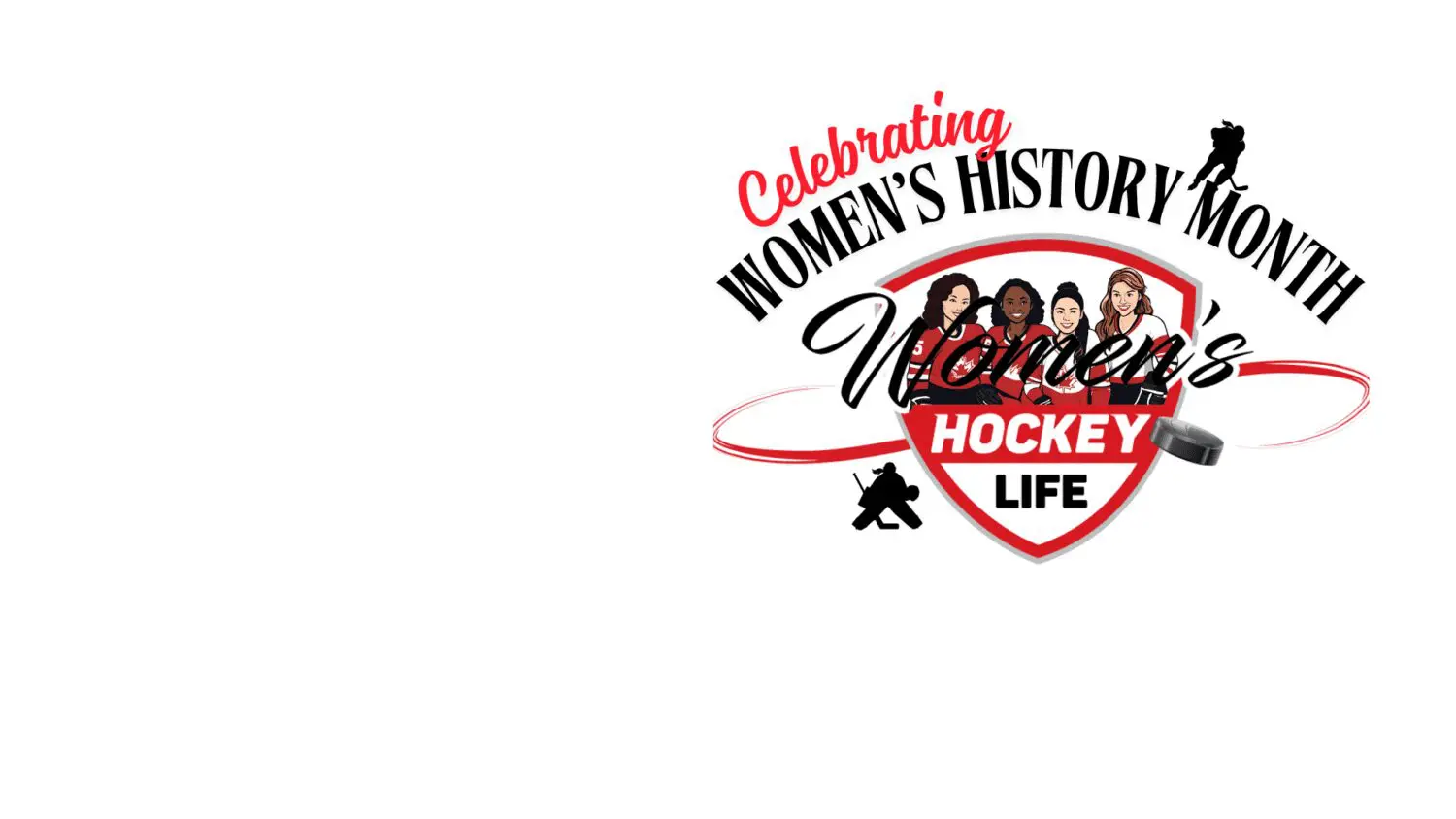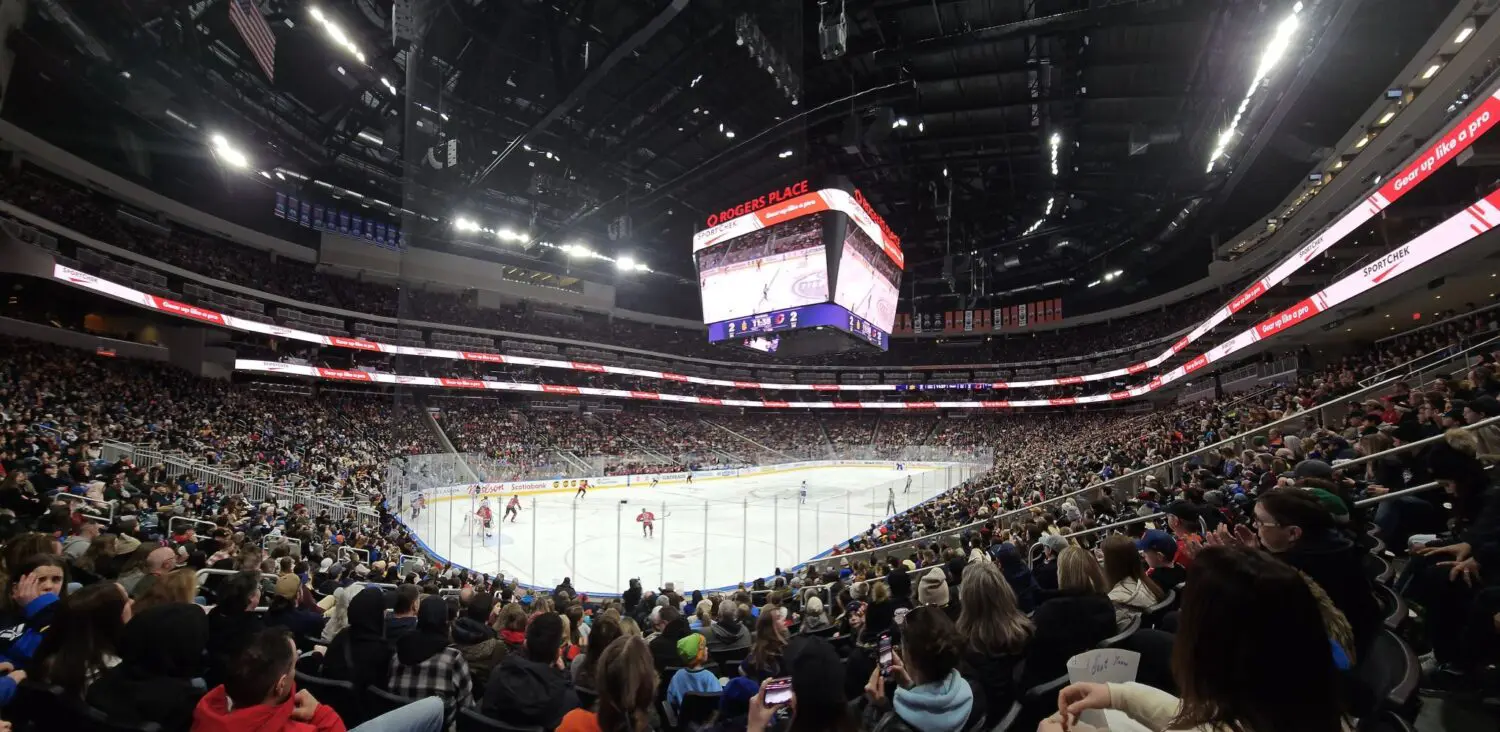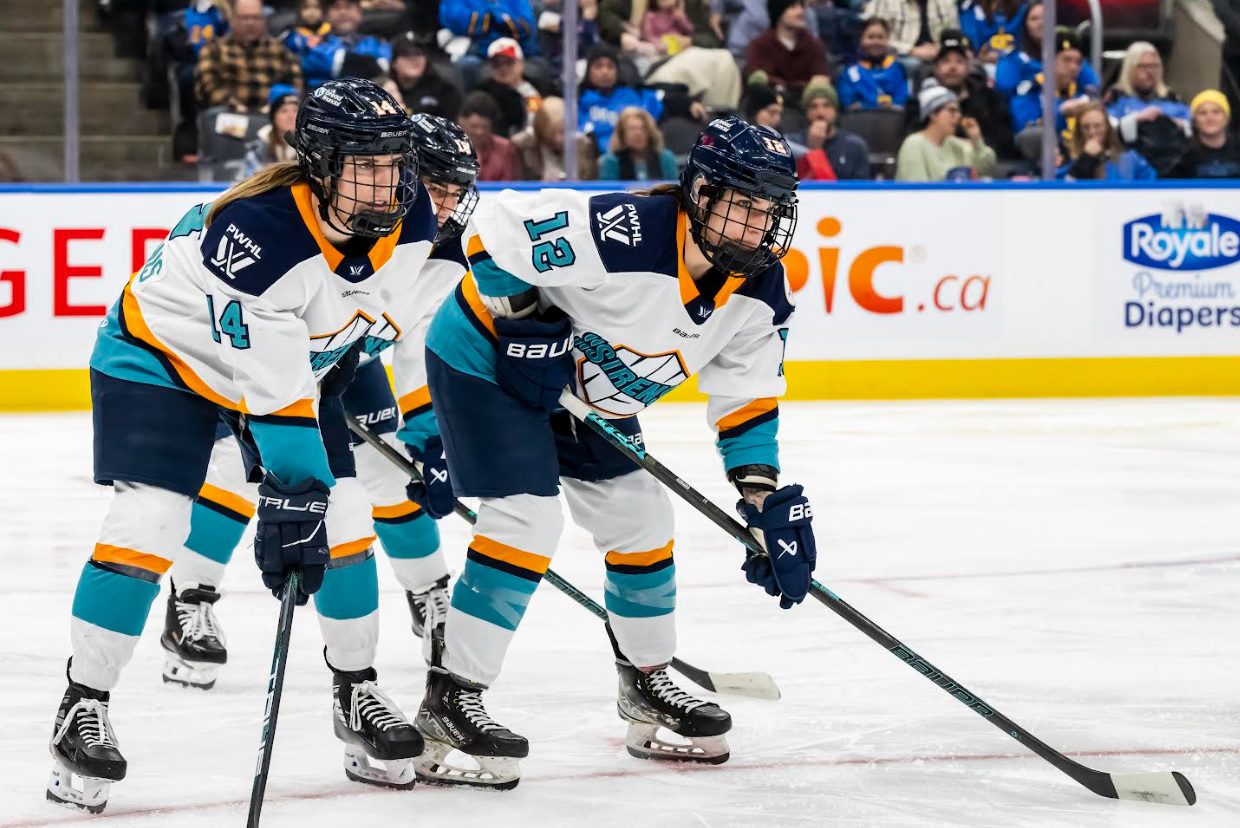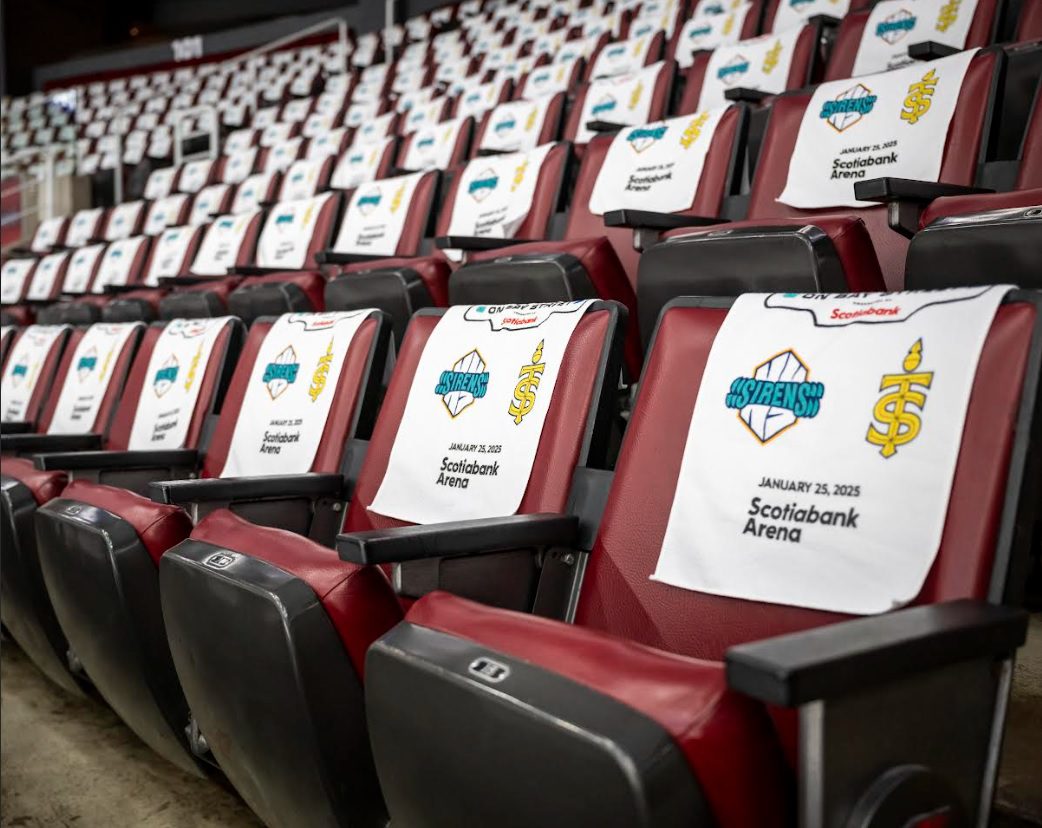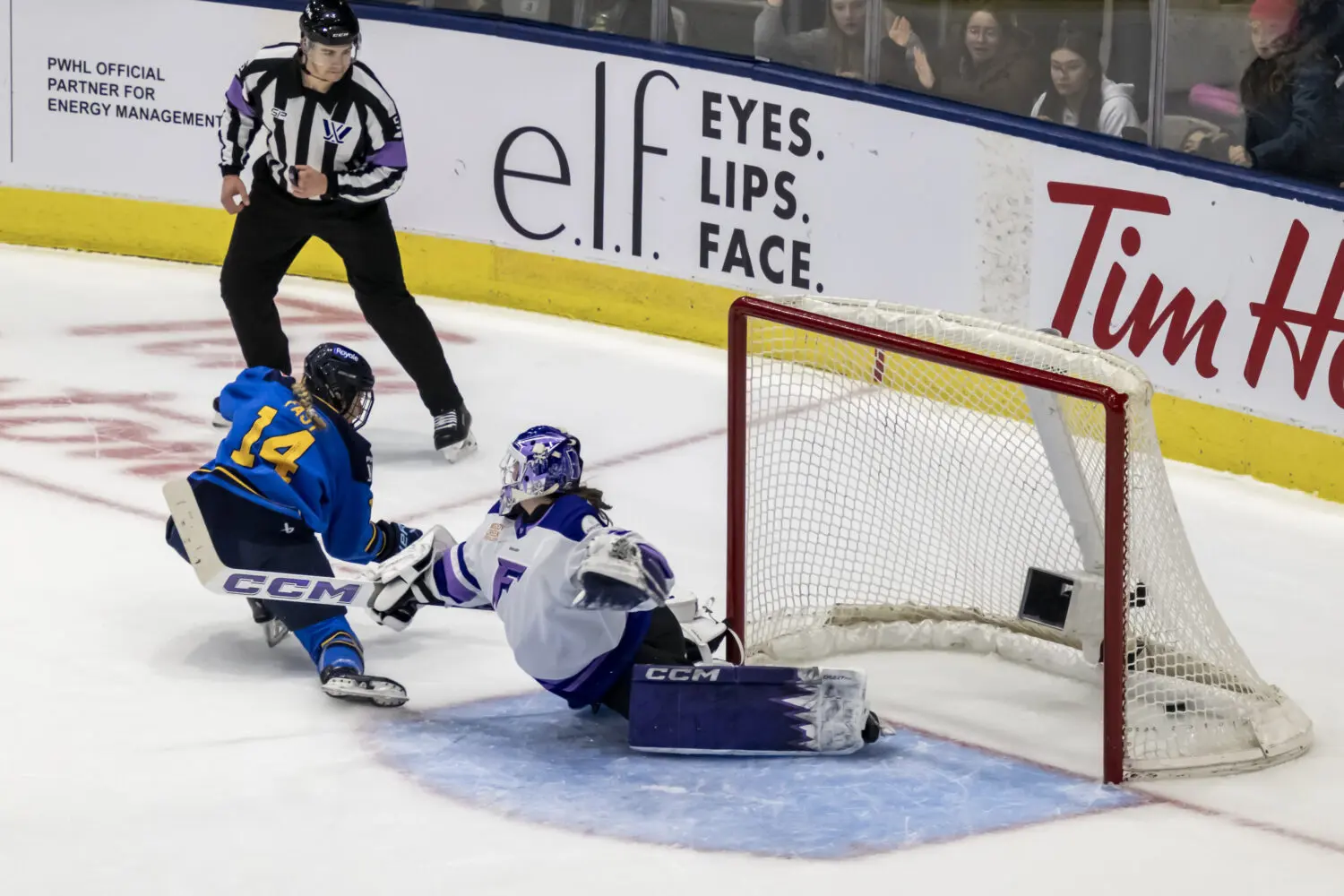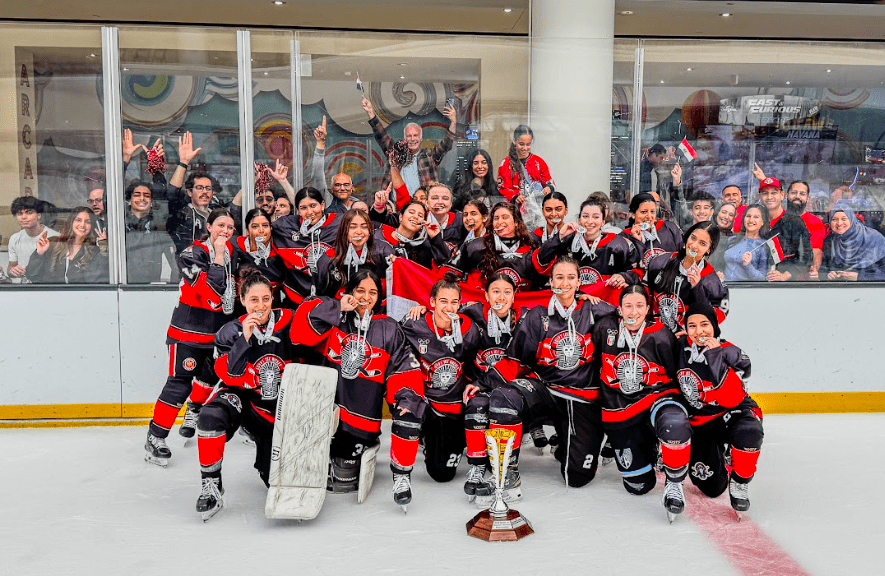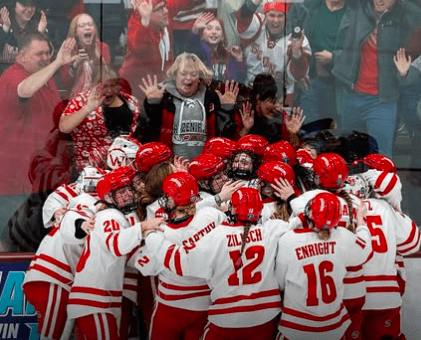In Part 2 of my sit down interview with Brock Women’s Hockey head coach, Margot Page, she discusses the Olympics, her transition to coaching, and coaching university hockey.
Part 1, all about her childhood and playing career can be found here.
Mikayla: What made you want to transition to coaching?
Margot: It was just a really natural transition for me. I knew I wanted to give back to the game and I was a very smart player. I could understand the game, I could talk the game, I could make adjustments. I understood the coaches and what they were doing. It was a natural transition that I would become a coach. I wanted to give back in someway in the game. The most fun for me is to do it as a coach. I actually was a teacher at the time as well.
It came to the point where all these younger players were coming up. They were getting better than me. I knew I was ready to hang up the skates when in my last year, I was playing forward and I was one of the captains on the team. I saw this young player, she was a forward and they were making her play defence because we didn’t have enough spots. I went up to the coaches and said “I will play defence, develop her”. I started playing defence and when there were too many players I would say “ Let them play, they’re doing well”. I am so competitive, I would have never in the past have let someone take my spot like that. I don’t care who you are.
What was the biggest difference between playing and coaching on the national team?
The commitment is the same, maybe more so at the coaching level. There is so much behind the scenes that goes on that I don’t think as a player you really appreciate until you coach at that level. The detail that is needed and how much you have to go back and make sure everything is looked after for the athlete. I think it’s different in the sense that there is more little detail stuff, you don’t just show up and play. Once you get to the rink, you had all these other little things you had to do as a coach to be prepared. I understood that just myself as a teacher knowing the preparation that is needed and my experiences as a player talking with coaches as to what they had to do. From that standpoint is was a smoother transition than some.
Also, as a coach, you are never right. You have to start realizing that, that you’re never going to make friends with everybody and you’re never going to be perfect. You have to go with what your values and ethics are. I love both aspects of it, obviously I’m still a coach now and it’s been my profession. It can be hard for younger females who are making the transition from playing to coaching.
You were part of the Canadian women’s hockey team coaching staff at the Torino Olympics in 2006. What was that experience like?
It was wonderful but it was so much work. We got there and I got 3-4 hours sleep for about a month. I wouldn’t change it for the world because I can’t believe how much I learned and seeing all of the other athletes in the village and the different countries. It was wonderful, I’m glad I did it and I’m glad I’ve only done it once because I didn’t have the interest in it to do it again. My level of coaching is more development and learning. The university level is a good fit because you have people who also want to get careers.
It was enjoyable, I learned so much in the Olympic year from the coaches and trainers. It helped me become a much more confident coach. I was able to believe in myself and develop my ethics and values.
At those Olympics, you coached with Melody Davidson. What did you learn from her? Did she at all impact the way you coach?
She’s unbelievable. She’s a detail master. Still to this day I reach out to her for advice and we connect all the time. Her and I became quite close in the Olympic year. I was sort of the buffer, or the filter of what actually needed to get to her and what didn’t need to. She could focus on just coaching. She’s not just unbelievable in coaching, what she has done for girls and women’s hockey globally has just been on another level. I honestly think you will or should see her in the Hockey Hall of Fame for a builder. Everybody loves her.
After spending many seasons at Niagara University, you came to St. Catharines to coach the Brock University women’s hockey team. Was there a lot of differences between coaching in the NCAA and in Canada or was it almost the same?
No it is quite different. Funding is different. Coming in and players wanting to be their best and wanting to play their best and the professionalism you can put behind that. I always say my biggest thing is not just winning championships but having a player come in, in first year and graduate in fourth or fifth year, being a strong, confident, independent young woman when they leave. It’s not just a matter of yeah we won championships but it’s she’s leaving here and I know she is going to make a difference in the world. That’s what I want to do.
You can work it here because the academics are the focus even though you still want to win those championships. Not that you don’t have it at the NCAA level but if you don’t win, you won’t last long there. They put so much money into it, you have to bring something back to the school instead of just a good athlete experience.
You are very active in the community, helping with girls’ hockey programs and mentoring coaches everywhere, why do you feel it is important to give back?
I think that is part of it. I love community engagement and being part of my community. I think that’s how I stay alive. I definitely want to give back and give my knowledge, especially as a female because that’s so important to keep females in the game and keep them possibly as coaches in the future. If the Jr. Badgers can see it, they can be it. If you see a female going in and it’s “Oh there’s Margot, she’s the coach” maybe they can aspire to be a coach but if they don’t see it, how can they be it.
It’s the same with coaches that I mentor, men or women, challenge me all the time even though I’m a university coach and they may be coaching peewee BB. They question what I do and I just say “Ok, let’s talk it through”. When I’m done the conversation there’s always a new respect for me and I have a new respect for them. I think it’s part of it when you’re coaching, to help other people, just as I would expect a midget team to help the little novices. If they see it, they can now be it. I want to promote the game and keep the females in the game. I want to develop.
What are some of the biggest lessons that sports taught you?
I think accountability is probably number one and that’s one thing I really talk to my own athletes about. You’ll hear that also if I was mentoring you as a coach, I’m responsible for a lot of different things and I want to be true if those are being achieved so my accountability is a 360 evaluation from everybody, “Am I doing my job?”.
The other thing is have a voice. I was a bit meek and mild when I was younger and I would always just say yes to my coaches. I learned now that I am a confident, independent female, I’ve come to the point where I ask questions. Here, administratively, they know that I’m going to have a voice. I will speak up and ask questions in the best interest of the women’s hockey team or women in sport.
For my Brock Badgers, I want that too, I express that to them. I should always be able to give you a reason as to why we’re doing something. Why should I wear running shoes on the bus instead of flip flops? Why are we doing this forecheck? Do it at the appropriate times but if I don’t have an answer why, I shouldn’t be asking you to do it. If I really don’t know then we have a conversation about it. It’s open dialogue. Players are going to disagree with me and they’re going to come and talk to me, which is great.
If you look at two things that are lacking in a lot of ways right now for females in sport at the higher levels is accountability and having a voice in the right way.
I think that is something many coaches out there need to hear.
It’s a hard skill to have. Yeah, it cuts your ego a little bit and it takes more time but it’s so well worth it. I’m going into my third year with some of this group and it’s paying off.
If you could look back and give your teenage self one piece of advice, what would it be?
For me it’s really building that confidence and self esteem and really believing in yourself. That’s going to be the whole scope of your being later on. I want to believe in myself. I want to be ok with myself earlier. For teenagers, that’s a really tough time. I want them to start believing in themselves and having the confidence to say it’s ok for me to be different, accept it and find the right people around you to be able to support that. You grow and develop from there.
Too often we try to fit in instead of being yourself. It’s ok to have some holes that aren’t filled. I see some athletes coming in at this level where the confidence isn’t there and I want it to be. It could be because they aren’t having a voice or they’re not being asked the questions. If I could have one thing different I would have loved to have been myself a lot earlier. I don’t think it would have changed me in what I’m doing now but I think I would have been a lot happier. Be yourself, be proud about it, be confident about it.
Something that many people probably don’t know about you is that you live on a farm with many animals. What impact has this lifestyle made on you?
Life balance. I didn’t have it through all my hockey years, I had no life balance. During the Olympics, it was all hockey, hockey, hockey. I was coaching division 1, I was doing stuff for the National team, running hockey camps, mentoring. As soon as I got two kittens that needed rescuing, I’m sure it’s the same was as if people had children. It was just a matter of putting focus on what I wanted in my life and where I wanted to go.
My two lives are so different. Here [Brock University] it’s active, social, high energy, always going. I’m a pretty intense person. I get in the car after this and I get to the farm and I decompress. It’s a whole different world. I’m so glad it’s come into my life because it’s taught me patience, to be frugal. I don’t think I would be happy without it.
Thank you to Margot Page for sitting down and sharing her experiences!
Feature Image: Stephen Leithwood
Do you want to play college hockey but have no idea where to start?
Our branch, WHL Academy helps female hockey players and their families navigate the recruiting process!
[adrotate group=”1″]
Related Articles
Categories
Recent Posts
[adrotate group=”2″]

